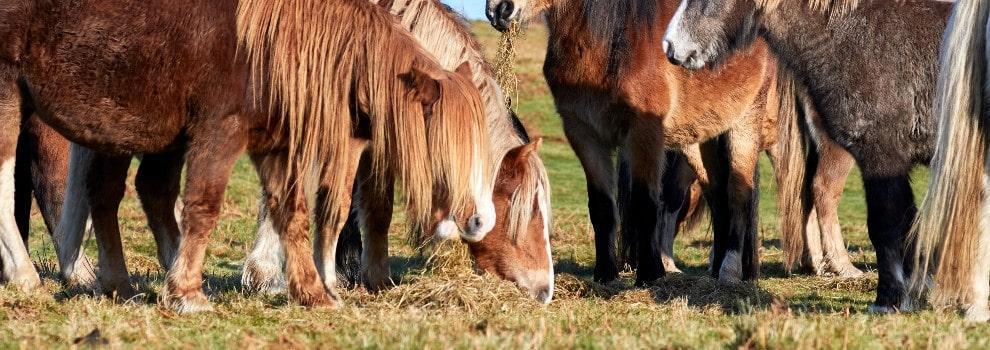What To Feed Your Horse | RSPCA - RSPCA
Grazing and pastures
Remember:
- Remove toxic plants - before letting your horse loose in a paddock, be sure to remove toxic plants, shrubs and trees such as ragwort and yew. Always dig up toxic plants, even if they're dead, and take them completely out of the reach of horses.
- Not all pastures provide enough nutrition, and many will be too high in calories. You may still need to give your horse extra hard feed and forage to maintain their ideal body weight, particularly between late autumn and early spring.
- If your horse is stabled, you should give them plenty of forage, as feeding horses diets low in forage and high in concentrates - such as hard feeds like cubes or grains - puts them at risk of digestive problems. Only feed your horse good quality, mould-free and dust-free forage, and only give them food designed for horses.
- Never give them lawn clippings or large amounts of fermentable foods such as apples, as they can be toxic and even fatal.
If your horse's lifestyle changes
Changes in your horse's lifestyle, such as increased or reduced work, movement on and off pasture, pregnancy, lactation and ageing will mean changes to your horse's diet. An equine nutritionist or an equine vet can advise you on this. Always introduce changes gradually, over a couple of weeks, as rapid changes in a horse's diet can make them ill.
If your horse's feeding habits change, consult your vet, as your horse could be sick.
Obesity and laminitis
Horses shouldn't become overweight, as it makes them prone to developing laminitis - a very painful disorder of the feet often triggered by feeding on lush spring and autumn grass. Speak to your vet about how at risk your horse may be of developing laminitis and how you can help reduce that risk.
Find out more about caring for your horse or pony in our guides to their environment, company, behaviour and health and welfare.

